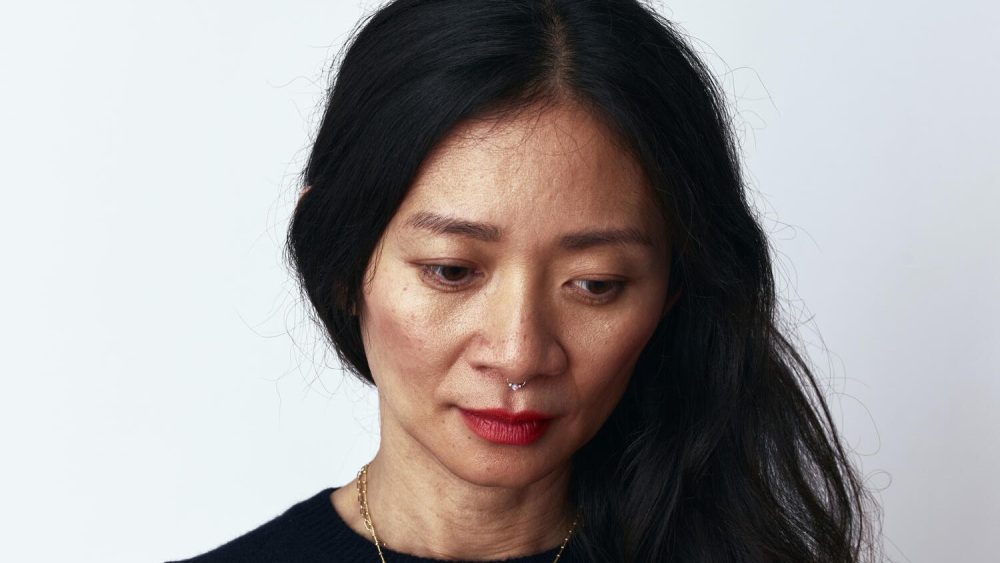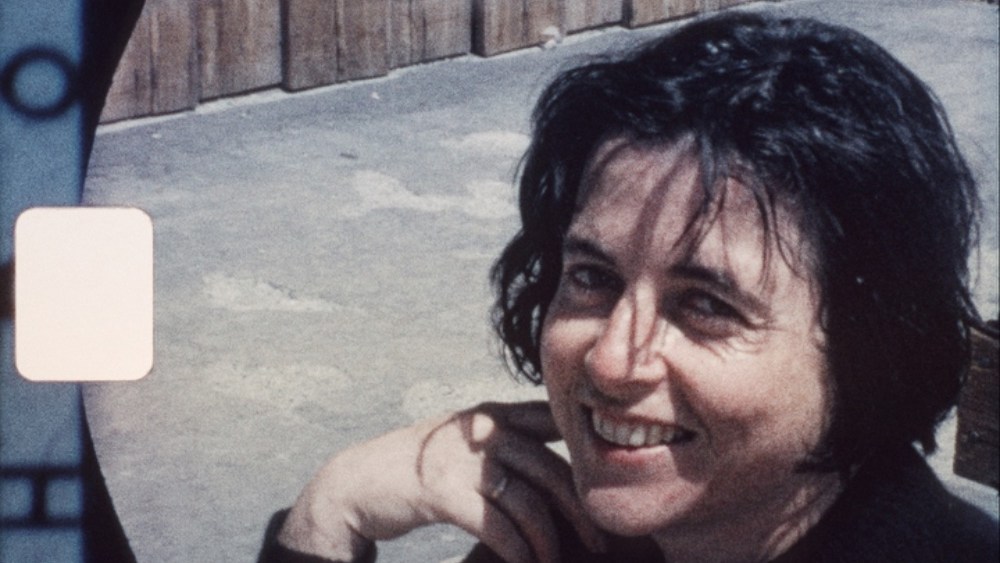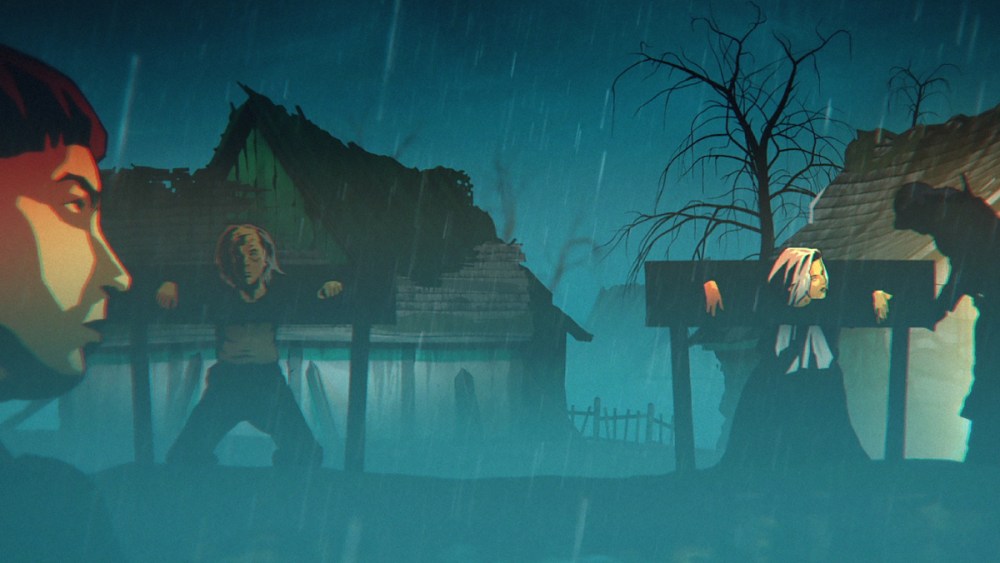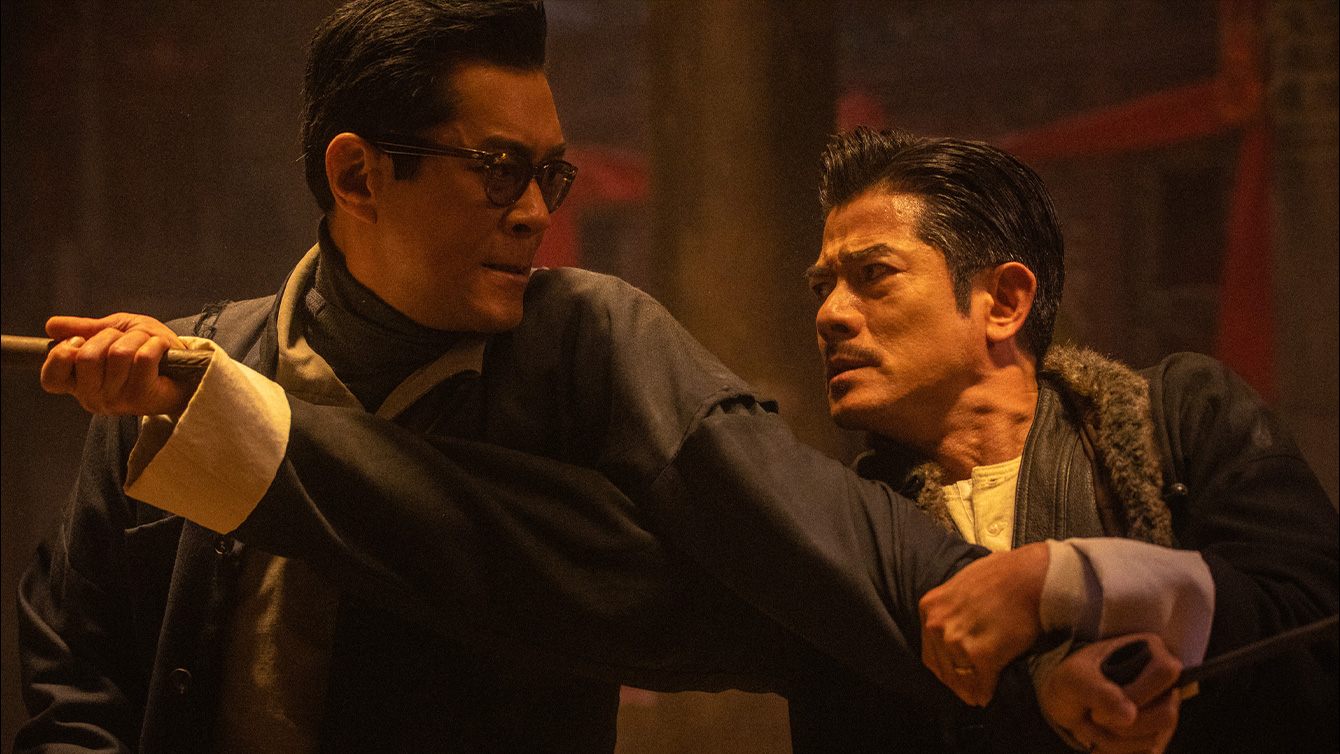Chloé Zhao on Hamnet, Break After Eternals and Buffy TV Sequel
Chloé Zhao emerges from her cave — her words, not mine — with “Hamnet.”
It’s a film that feels less like a period drama and more like a spiritual excavation. The co-writer and director, who spent a decade traversing America for her first three features before winning an Oscar for “Nomadland” (2020), has created something that operates on a frequency beyond traditional narrative filmmaking. It’s a dangerous kind of vulnerability, and Zhao knows it.
“We’re experiencing our tools to bring us to the present moment, moment by moment,” Zhao explains, her words tumbling out in the associative way of someone describing the indescribable. “So it doesn’t feel like we did it because it’s channeled. It came through us.”
This channeling required Zhao to confront parts of herself she’d kept carefully contained. For years, the maternal, the deeply feminine, the parts of consciousness that felt unsafe to inhabit fully — these elements were either absent or repressed in her work. “My first three films, if you think about it, the mother characters, the kind of deeply connected to earth, to nature, this kind of powerful feminine energy that almost feels like nature doesn’t coexist—the mothers are either not capable or dead,” she reflects. “I actually wasn’t sure I could handle this character. To direct this character, create this character, I have to bring that part of myself out. And I wasn’t even sure I was ready for that.”
The four years between Marvel’s “Eternals” (2021) and “Hamnet” were not an absence but a necessary metamorphosis. “I think the first three films changed my life — that 10 years of going to different places in America and getting to know America as an Eastern person and as a Chinese person,” Zhao says. “What happened was that kind of pioneering, gathering treasure of the 10 years, making the first three films was bubbling inside of me so much. It was like a volcano, and it erupted, and that eruption was ‘Eternals.’” She needed those four years to cool the lava, excavate the material and reshape it into something that could examine the nature of humanity on her terms.
Working with Paul Mescal, Jessie Buckley and breakout child actor Jacobi Jupe, Zhao created a container — her preferred word — for audiences to feel together, to watch each other experience grief and transformation. The film’s emotional centerpiece, where Buckley’s character confronts unimaginable loss, required a delicate balance of preparation and surrender. “For Jessie to go into a scene like the death of a child, and to then hold attention of knowing who this character is, but also not knowing, moment by moment, what’s going to come through — only when you hold long enough that ‘to be or not to be’ tension does the answer arrive,” Zhao explains. “And when that arrives in that scream, that’s not just her grief, that’s grief channeled through her, because she had chosen to be a conduit of that.”
Nature itself became a head of department on “Hamnet.” A void in an ancient forest, discovered during location scouting in Wales, inspired the film’s central metaphor — connecting the Globe Theatre stage to something primordial and eternal.
What Zhao wants audiences to take away from “Hamnet” isn’t only catharsis, but evidence of the human capacity for transformation. “We are designed to have the chemical capacity to go through metamorphosis at any time, any stage in life,” she says. “When there’s great tragedy, you don’t have to give it a narrative like something’s wrong. You can look at it like it’s winter, fall coming to winter, and the more one can sustain the discomfort of winter, the more beautiful and glorious the summer is going to be.”
On this episode of the Variety Awards Circuit Podcast, Zhao discusses the spiritual dimensions of “Hamnet,” working with child actors and why her upcoming “Buffy the Vampire Slayer” sequel pilot required an entirely different skill set. Listen below!
Read excerpts from her interview below, which has been edited and condensed for clarity.
What makes “Hamnet” different from your previous work?
I was different. I was very different. So everything about it is different. But what remains the same is the desire for people to feel, to create a container for people to be together and feel and look at each other, watch each other feel.
The maternal energy in this film feels very different from your earlier work. Was that a conscious evolution?
My first three films, if you think about it, feature mother characters who are deeply connected to the earth and nature, embodying a powerful feminine energy that almost feels like it doesn’t coexist—the mothers are either not capable or dead. The characters in my first three films typically have a repressed feminine side, and they must undergo a journey. Cersei in “Eternals” was my first attempt to bring back that side of feminine consciousness within me that never really felt safe enough to become fully seen and empowered.
I actually wasn’t sure I could handle this character. To direct this character, create this character, I have to bring that part of myself out. And I wasn’t even sure I was ready for that. So that’s why I even hesitated, because there’s a motherload of mother in this one.
You and Jessie Buckley both discuss not fully understanding how you achieved certain moments. Can you explain that process?
I think the reason it might sound like we’re being very modest is that there’s a genuine reason. What we are trying to do, what we work really hard for, is to utilize our tools to bring us to the present moment, moment by moment. So it doesn’t feel like we did it because it’s channeled. It comes through us. However, it doesn’t mean that the preparation work doesn’t require a lot of practice. It doesn’t require a lot of commitment, discipline, or sheer energy and physical endurance to stay in a state of consciousness and unconsciousness.
In nature, how nature tells stories, which to me is a spiral, it doesn’t know where it’s going to arrive. It stops when the energy brings it to a state of cohesion. You also have to lead and build from half of the time from consciousness, but the other half from unconsciousness, which means not knowing. That is — while trying to deliver a film that is going to exist and be judged by a world that prefers knowing and control and rationality — a lot of faith from top level, like studio level, down to a PA who doesn’t know what’s going to happen today on set.
For Jessie to go into a scene like the death of a child, and to then hold attention of knowing who this character is, but also not knowing, moment by moment, what’s going to come through — only when you hold long enough that “to be or not to be” tension does the answer arrive. And when that arrives in that scream, that’s not just her grief, that’s grief channeled through her, because she had chosen to be a conduit of that. But to do that is no small matter. But if you ask her how you did do it on the day, I can’t quite tell you — it’s weeks, weeks, months and years of commitment.
Working with child actor Jacobi Jupe seems to have been remarkable. How did you approach those scenes?
When I met Jacobi, I was stunned by both the raw talent and the ability to stay present, but also the techniques—being able to deliver things over and over again, and understand the subtext, understand the nuance of things on the spot. In that moment when he says, “I’ll be brave, Father, I’ll be brave”—that was not in the script. We did a couple of takes, and then, as I’m watching, he just came to me. I just shouted, “I’ll be brave, Father, I’ll be brave.” And then he goes, “I’ll be brave, Father.” He just acted. I was like, Wow. I thought I would have to cut and go tell him, explain. No, he just did it and the nuance of it when he delivered the lines.
If children aren’t giving it their first or second try, I don’t have the skills to turn them around, because that means they have to pretend, and my dissonance meter is so high that I won’t be able to handle it. So I’ll take what they give. That’s why casting is everything, and creating the environment and letting them be in the moment, actually feeding these emotions.
Can you discuss finding the tree, with the void, and how nature influenced the film?
Nature is one of — I’ve worked with nature, I consider it a crew member, truly a head of department. Earth is one of my HODs. I was in Ukraine. I was with somebody who was making a documentary set on the front line in a strip of forest. So, he was sending me this stuff, and I was seeing these dugouts, holes, and limelight holes in the ground. And I walk around my forest, and I see these naturally made holes in the ground. I just had such a big emotional reaction because the void is coming from within us, one way or another, and somehow it made me feel like it’s meant to connect us. It doesn’t matter what life’s circumstances are — this is the great equalizer, and it makes us human.
In that darkness, in that void, the composting process happens, and new life comes out of that. It comes out of the battlefield. It originates from an ancient forest. All of us will become compost. So all living things must die, passing through nature to eternity. With everything that’s going on in the world, which feels so impossible, our humanness will somehow connect us in the end.
We were looking for a tree with a void, and we had this crazy idea that we would have “Hamlet” playing on a subsonic level, one that you can’t hear when they meet. So the void actually connects past and future. That void inspired Hamnet to be on the stage. None of that was in the script. Then we realized he’s going to get stuck at the threshold, at the void on the stage, unable to go because his mother is holding him. When I say nature is an HOD, it is because it inspires everything — inspiring the language of the film, the catharsis of the film, and the symbolism that emerges from it.
You didn’t formally study film until later. What were you supposed to be?
A manga artist or a private detective. Those were my two career goals. I used to read, in middle school in China, a Japanese manga called “Cat’s Eye,” which is about three sisters. They’re like thieves at night. They own a coffee shop, but they’re like detective thieves, solving stuff at night. They leave behind a small card. It’s this cat’s eye, like a black cat with an eye. And I used to make that and go around my middle school. I’d hand it out and say, Hey, if you need your cheating father to be followed, or if you lost something — no one came to me for anything, but I just wanted to be a detective. That is a storyteller now — you’re trying to find out, trying to make sense of things. Why are things the way they are? You’re trying to investigate.
What films changed your DNA and made you want to become a filmmaker?
Wong Kar-wai’s “Happy Together.” I watched it before I considered being a filmmaker, but I remember thinking, ‘This is something else.’ This is special, this medium. But in terms of probably Terrence Malick’s work and Werner Herzog’s work, both. Werner’s work — how rough and raw and raw is truth, can I be? And then with Terry, how much can my mother embrace me? There’s a very father-mother energy to these two. So I would say the two of them made me go.
The road to your first film wasn’t easy. What happened?
It was rough. It was the financial crisis. So we went into film school believing the myth that you would make a feature and it would premiere at Sundance, and then Focus Features would give you a three-picture deal. But by the time we got out of film school, it was like, you have an elevated genre — that’s the only thing we’ll consider financing. Everywhere we kept losing money last minute.
I was conducting camera tests in New Jersey and discovered that the money wasn’t coming through. Went back to our apartment in Bushwick, and we were robbed, and the hard drives that had some of the footage we shot for the film were gone. I sat there and called up Molly, and the three of us kind of went, you know what? I think there’s a message here. Maybe it’s not about raising money to do this. Perhaps it’s about taking our Chris Columbus Grant and our Kickstarter money, and let’s just go do this with what we have. And that led to how we made “Songs My Brothers Taught Me.”
How did you approach “Hamnet” following the “Eternals,” which some saw as a difficult period for you?
First and foremost, I’m very proud of “Eternals,” and I had a great time working with Marvel, full stop. I love the team there, who really supported me. I think the first three films changed my life — that 10 years of traveling to different places in America and getting to know America as an Eastern person and as a Chinese person, and understanding different cultures, ways of life, spirituality, and nature, opened up many things within me.
What happened was that, after pioneering and gathering treasure over the past 10 years, making the first three films, the idea was bubbling inside of me so much. It was like a volcano, and it erupted, and that eruption was “Eternals.” The reason I was drawn to “Eternals” is that it provided a container that allowed me to erupt, as it’s a story about a pantheon of gods discussing the nature of humanity. It allows me to digest everything I have learned from the first three films on the canvas.
It took me four years since that eruption to contain that lava, cool it down, learn a lot of new tools, build a lot of safety structures around it, and go in there, excavate what that material that came out of me. “Hamnet,” I would say, was my first attempt to chip away at a massive chunk and sculpt it, reshape it, and represent it to the world in a way that allowed me to examine the nature of humanity.
What do you want audiences to take away from “Hamnet” beyond the obvious emotional response?
There’s love, there’s death—two human experiences that we came here for—and then there’s metamorphosis. I underwent a significant transformation over the last four years. That’s the only way I could go back into the lava and do this work. We are designed to have the chemical capacity to go through metamorphosis at any time, any stage in life that can take different shapes and forms. In this case, a play, creativity.
It’s comforting to a certain extent, because then your life doesn’t have to be that black and white. So when there’s a great tragedy, you don’t have to give it a narrative like something’s wrong. You can look at it like it’s winter, fall coming to winter, and the more one can sustain the discomfort of winter, the more beautiful and glorious the summer is going to be in the spring. I hope the film, at least the last 20 minutes or 15 minutes, offers a glimpse of the power of metamorphosis that comes through for the audience. And if that’s the case, we’ve succeeded.
Can you tell us anything about your “Buffy the Vampire Slayer” pilot?
It is not a reboot. It’s a sequel. You can never replace these characters. I would never allow that. And Sarah’s back. I love my cast, the new cast. We will bring back OG characters for sure. And it is a show that bridges two generations — it’s not just about the kids. I think the fandom is so important to us. We want the fandom to see themselves mirrored in the original fandom. And of course, we want new fans to join, and it’s very much about both generations.
I watched religiously. I was at Mount Holyoke. We would all gather — I think it was every Thursday or Tuesday — and we would watch, because you only get one episode and you’re waiting a week. It’s such a ritual. I remember the last episode finishing, and we sat there; everyone was crying, and we were all holding hands. I remember looking at the screen, tears streaming down my eyes, and I said, “Good luck to you, Buffy Summers, good luck to you.” Seeing Sarah in real life was probably one of the most stressful moments of my life.
Also on this episode, “One Battle After Another” star Regina Hall. Additionally, the Awards Circuit Roundtable discusses the main contenders for Netflix, the winners of regional festivals, and the dark horses in the Oscar race.
Variety’s “Awards Circuit” podcast, hosted by Clayton Davis, Jazz Tangcay, Emily Longeretta, Jenelle Riley and Michael Schneider, who also produces, is your one-stop source for lively conversations about the best in film and television. Each episode, “Awards Circuit” features interviews with top film and TV talent and creatives, discussions and debates about awards races and industry headlines, and much more. Subscribe via Apple Podcasts, Stitcher, Spotify or anywhere you download podcasts.
Share this content:




Publicar comentário